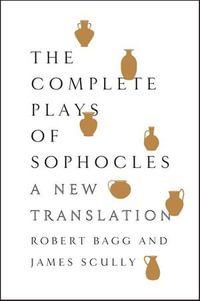Booktopia has been placed into Voluntary Administration. Orders have been temporarily suspended, whilst the process for the recapitalisation of Booktopia and/or sale of its business is completed, following which services may be re-established. All enquiries from creditors, including customers with outstanding gift cards and orders and placed prior to 3 July 2024, please visit https://www.mcgrathnicol.com/creditors/booktopia-group/

The Making of Felony Procedure in Middle English Literature
By: Elise Wang
eBook | 24 April 2024 | Edition Number 1
At a Glance
eBook
RRP $132.03
$118.99
10%OFF
or
Instant Digital Delivery to your Booktopia Reader App
ISBN: 9780192698254
ISBN-10: 0192698257
Series: Law and Literature
Published: 24th April 2024
Format: ePUB
Language: English
Publisher: Oxford University Press Academic UK
Edition Number: 1
You Can Find This eBook In
This product is categorised by
- Non-FictionLiterature, Poetry & PlaysHistory & Criticism of LiteratureGeneral Literary StudiesClassical Literary Studies
- Non-FictionHistoryEarliest Times to Present DayEarly History from 500 to 1500Medieval History
- Non-FictionLawJurisprudence & General IssuesLegal History
- Non-FictionHistoryGeneral & World History
- Non-FictionLawJurisprudence & General IssuesLegal Skills & Practice
























